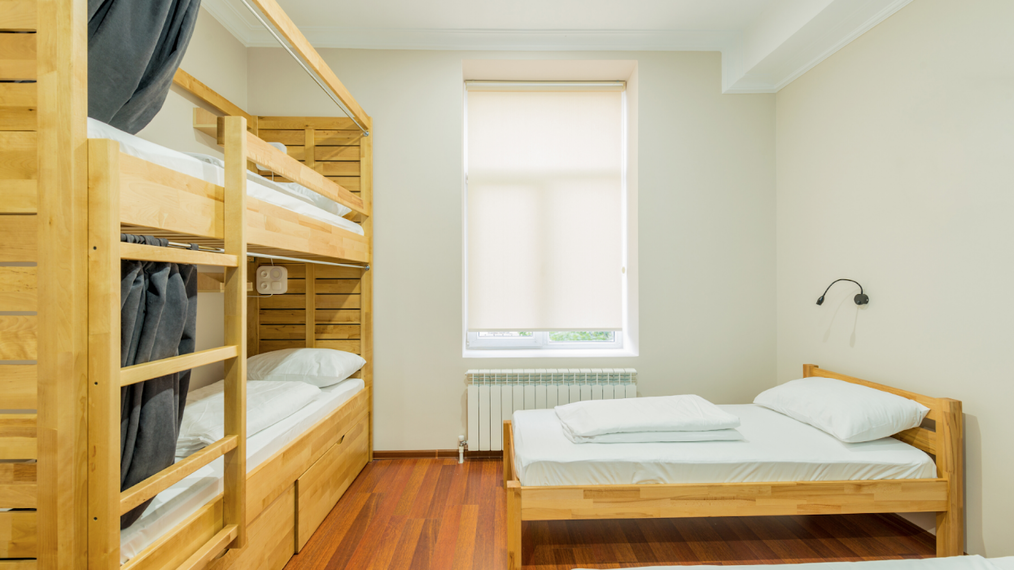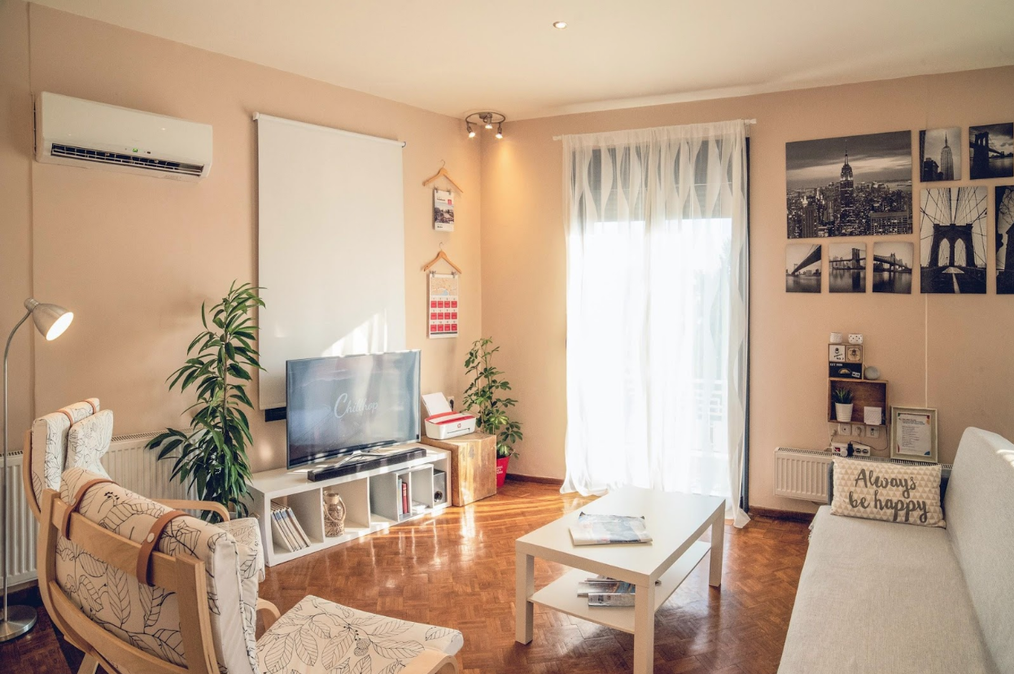
Everything You Need to Know About Study Abroad Housing
Here's your essential guide for choosing the best study abroad housing and making the most of your time overseas!

Studying abroad is a dream for many students. Not only does it facilitate educational, professional, and personal growth, but it’s a way to travel the world at the same time! You'll learn new languages, embrace unique cultures, and make friends and connections that might last a lifetime. But, to make the most of this experience you have to have a safe and happy place to call your “home away from home.” Deciding where and what to study abroad are your first two biggest decisions, but finding student housing isn’t far behind. Here’s everything that you need to know about study abroad housing!
Types of study abroad housing
There is no “perfect” study abroad housing, as each type has its pros and cons. To find the best fit for you, consider what you want to get out of your experience, and then assess what is most compatible with your desired study abroad lifestyle.
- Homestay: Living in a homestay allows you to form connections instantly with a host family. This offers the most immersive experience and is also great for language learning. You’ll eat meals with your host family and they can show you the best spots around town, accelerating your cultural knowledge. The only downside with a homestay is you may have less personal space or have to abide by house rules depending on the family.
- Dormitory: Student dormitories are ultimate way to make new friends abroad! There will generally be common areas, however, dorm rooms can come with steep prices and may not be the most tranquil atmosphere for studying or time to yourself.
- Private apartment: Renting an apartment grants you the independence and freedom that you don’t necessarily have in dorms or homestays, and you can choose the location most convenient for your lifestyle. However, it can cut you off from meaningful cultural experiences and relationships with locals or other students if you’re less social.
- Student halls: Private rental halls are similar to university dorms but they’re generally off campus. While they're off-campus, they're an excellent way to meet other students.
- House share: Outside of homestays, sharing living spaces tend to be the most affordable option for students. Shared housing is ideal for making friends with other students or young professionals, but communal living can also lead to personality clashes and cultural or communication difficulties, so it’s helpful to have an idea of who you’d like to live with before committing.
How to find study abroad housing

It’s best to find your study abroad accommodation sooner rather than later, as you don’t want to be staying at hotels while you’re studying. However, you’ll want to be able to make an informed judgment before choosing where to live. Here are some of the best ways for you to find study abroad housing.
- Go with a third-party program: While more expensive than direct enrollment, third-party programs offer unwavering support, and accommodation is usually included in the program fee. Arriving in your study abroad location and knowing that your housing is already set up can be a huge relief if you're a first-time traveler. Some programs even include airport pickup that takes you straight to your new home!
- Speak to your university or study abroad advisor: Your university will often partner with private student halls or they may even provide accommodation for students. Whatever they offer, they’ll have reliable contacts and have a lot of experience in advising students on where to go. Your study abroad advisor may also be able to help you connect with study abroad alumni for more advice.
- Online house listings: Websites such as Student.com, Uniplaces.com, Studyabroadapartments.com, and more, offer plenty of opportunities for room vacancies. Whether you’re looking for a house share or private apartment you can filter and narrow down your search to find the ideal home for you.
- Social media groups: Facebook offers plenty of potential for students to find rooms or entire apartments for themselves. You can post what you’re looking for on housing and apartment groups, or you can scroll through posts to see if you find one that you like. Try to stick to student groups for these searches and be careful of scams.
Another thing you may want to consider if you’re looking for an apartment or a house is how to find housemates. Again, you can use social media groups such as Facebook to connect with other students who are looking for housing. If you’re already in-country, you can download apps or join social groups and societies at your school to find others who are looking for student housing.
Read more: How to Make Friends While Studying Abroad
Other things to consider when choosing student housing

In addition to finding the ideal house type for you, you’ll also need to consider other aspects of your study abroad lifestyle.
- Finances: Studying abroad can be expensive, even before you consider housing. While there are many study abroad scholarships and grants to make all of this more feasible, it’s still important to think about how you can cut down on costs when it comes to housing and living expenses. While homestays are the most cost-effective option, sharing an apartment or a house with other students will also divide the monthly costs.
- Location: You should consider how easy it is to get to campus while you’re studying abroad. Is the campus within walking distance? If not, does it have good transport links? You can research online to see the benefits and drawbacks of living in a particular area by those who have local insight.
- Diversity-friendly housing: While a big part of studying abroad is experiencing different ways of living, not everyone is open-minded to diversity. Searching for housing that is specifically female-only or LGBTQ-friendly, for example, may help you feel more comfortable if you’re concerned about potentially living with unwelcoming housemates.
- Tenants rights: Read through your rental contract! If you don’t have a solid handle on the native language, ask a local study abroad advisor to read it over with you. It’s important to understand your rights and what’s being asked of you as a tenant. Document pre-existing damages when you move in - you never know what your landlord is like and unfortunately, some look for any opportunity to deduct money from your deposit.
- Rental fraud: If you’re organizing your own study abroad housing, you’ll need to take precautions to avoid rental fraud. Many scams exist online. Never hand over money before viewing a property and do your research into the company or rental agency beforehand. A good rule of thumb is: if the place looks too good to be true, it probably is!
Navigating cultural differences in study abroad housing
One of the greatest aspects of studying abroad is the cultural exchange. However, sometimes the cultural differences that are so exciting can lead to frustration or confusion, especially when you share a living space. Here are some of the best tips for living with foreign roommates while studying abroad:
- Break the ice: Don’t leave it too long without introducing yourself to housemates, otherwise, things can become awkward. Introducing yourself early as an open and friendly individual will encourage others to strike up a conversation with you! Consider suggesting to your housemates to go out for a coffee, dinner, or a drink to get to know one another in a casual setting.
- Keep an open mind and be respectful: Every culture has unique ways of living that you may not be used to. Be respectful of things you might find unusual. Remember: it’s not bad, just different!
- Learn from each other’s cultures!: In addition to respecting differences, it’s also a great idea to learn more about your roommates’ cultures. Ask them to explain customs, holidays, or even how to cook a traditional meal.
- Communication is key: Outside of financial contributions, consider discussing the distribution of chores and/or a cleaning rota with your roommates. Disputes over cleanliness are unfortunately common in living situations, especially when you're in a country that has different standards or expectations. You might feel uncomfortable laying out expectations, but it’s a necessary evil!
Read more: How to Make Friends While Studying Abroad
Study abroad and make friends from all over the world!

Finding accommodation while studying abroad is challenging, but totally doable! Although you may find it overwhelming at first due to the language barrier and unfamiliar environment, you’ll always have people to lean on for help. The friendships and memories you’ll make will be worth it!
Consider calling your university abroad and study abroad advisor for suggestions ahead of time. While you may not think so at first, Facebook groups are a fantastic way to not only gain insight but also find student housing. Talking to local students and alumni members can help you understand rent prices, the best areas of town, and other considerations. Read local blogs for recommendations on the best areas for your age and interests!
Read more about preparing for studying abroad:






